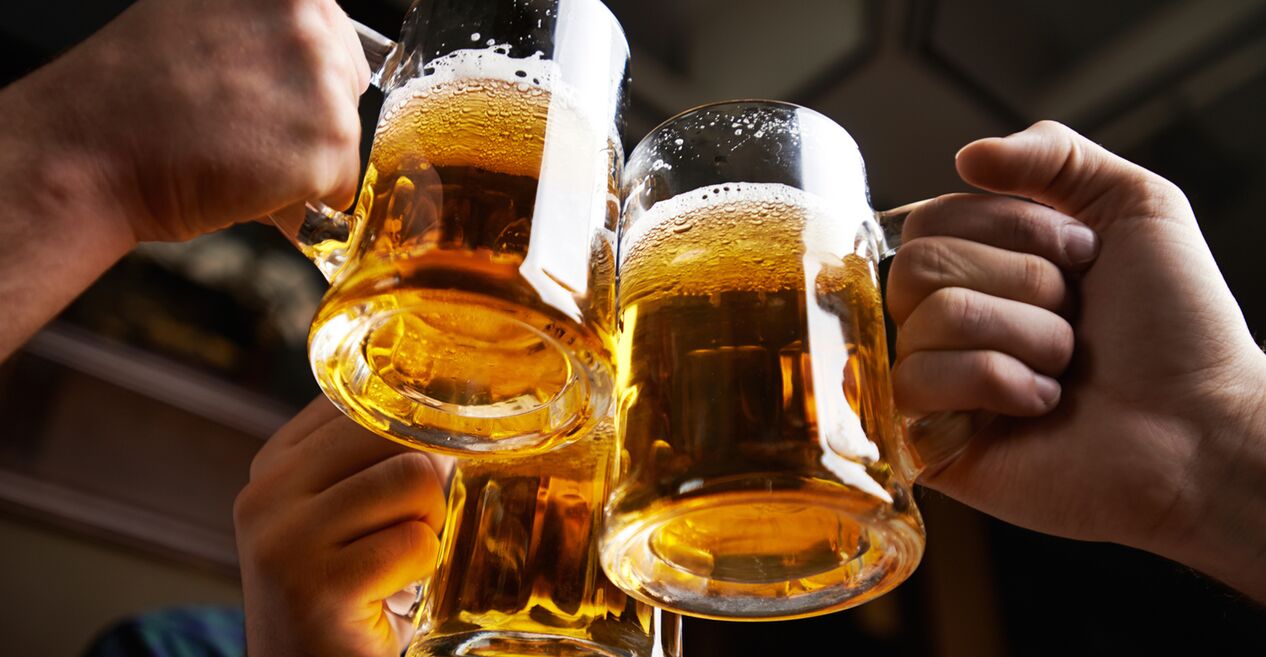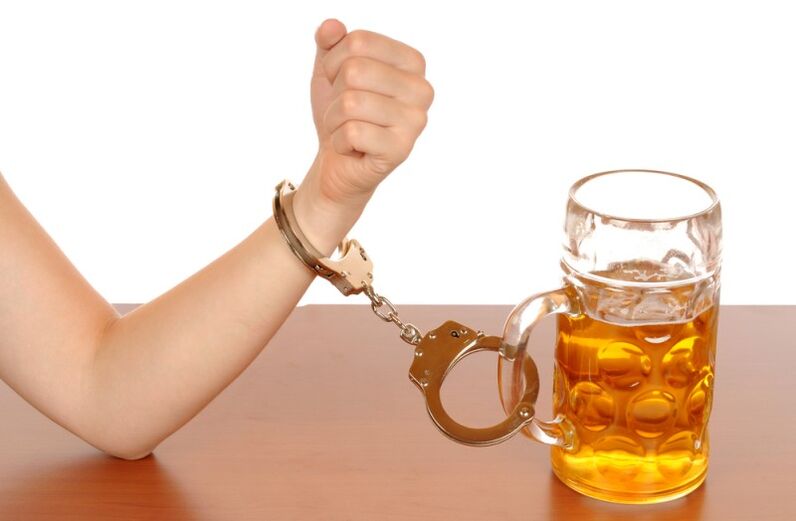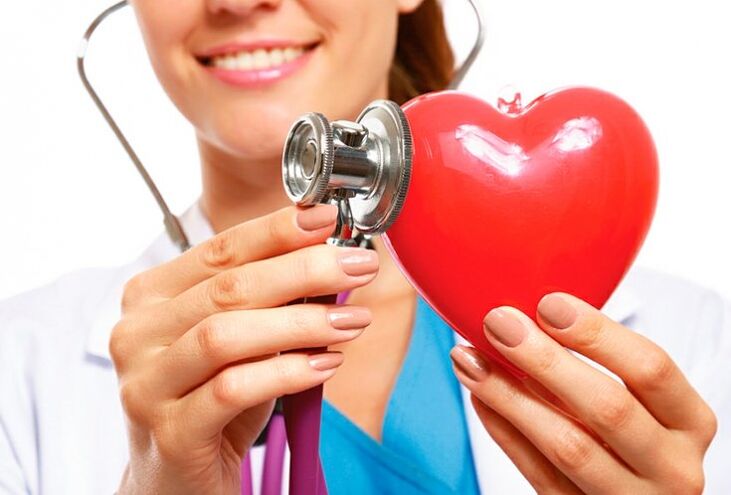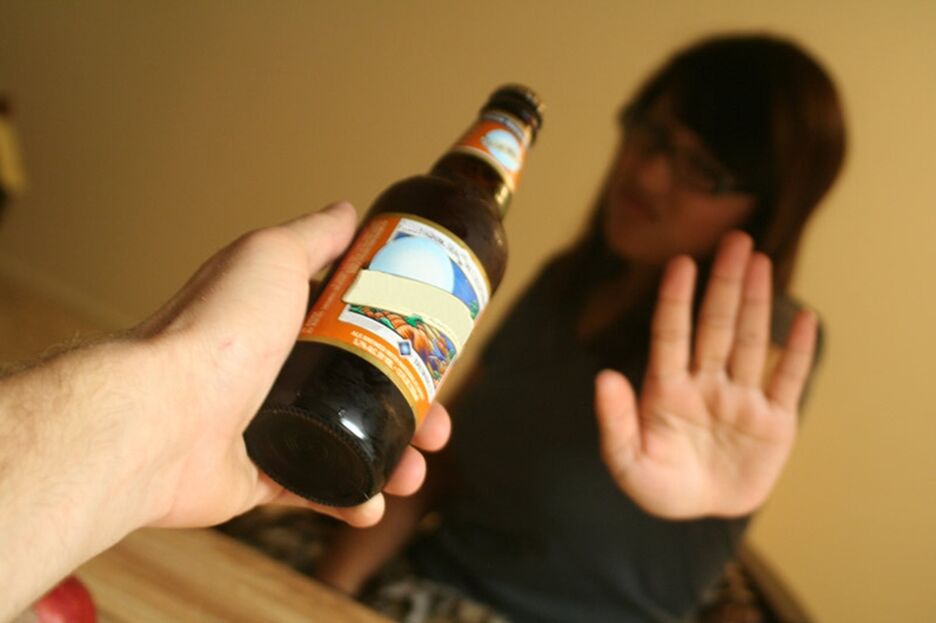Regular consumption of any alcoholic beverage cannot last long without consequences. So-called beer alcoholism develops much more slowly than a strong addiction to alcohol and this is its special danger.

What is the danger of beer
The type of alcohol is not important for the development of alcoholism. The disease occurs when drinking wine, vodka, moonlight, alcoholic cocktails and beer. The only thing that low-alcohol drinks affect is the rate of addiction. In this regard, beer is considered one of the most dangerous drinks. And so.
- There is 4 to 14% alcohol in it, which does not worry most. Indeed, there is alcohol in such harmless drinks as yeast or kefir.
- The beer is delicious. Unlike vodka or moonlight, which you have to "push" inside, you can enjoy the intoxicating liquid as much as you want and often want to repeat the pleasure.
- In terms of popularity, beer ranks first in almost all segments of the population: it is drunk by men, women and teenagers. In obsessive advertising, it is presented as an ordinary non-alcoholic drink.
- In addition to alcohol, most varieties contain a number of substances that adversely affect the endocrine and cardiovascular systems.
If we take a closer look at the above facts, it becomes clear that there is nothing safe in this drink. Frequent drinking of beer is not condemned by society. On the contrary, there are arguments in favor of it. It is recommended to compensate for vitamin deficiency or to improve digestion. For that reason, many do not have a psychological signal to stop, which is, for example, at the beginning of the abuse of strong alcohol. Drinking vodka is considered shameful and unhealthy, and drinking beer daily is just a form of relaxation. Some do not consider it dangerous to give it even to children "to promote health".
Signs and characteristics of beer addiction
The usual arithmetic calculation allows you to determine what threatens beer drunks with regular libations. In 1 liter of weak beer 40 ml of pure ethanol, in strong variants - 120-140 ml. In the latter case, the allowed daily dose of alcohol for men is doubled. And if you take into account that 1 liter is drunk only "for overclocking", and then the amount does not count, it becomes clear that the consequences of drinking beer cannot be avoided.

From an ordinary hobby, addiction smoothly transitions to psychological addiction, while the bully is pretty sure of his own well-being and does not put himself on the same level with alcoholics, but continues to drink beer every day. You can understand that the disease develops when the following situations occur:
- upcoming gatherings with beer cause impatience and joyful anticipation, because of them you can put off less important things;
- drunkenness occurs quickly and lasts a long time;
- drink at least 1. 5 liters per day, the maximum is not exactly known;
- days when the usual beer is impossible for some reason, irritation is experienced, the mood worsens, only a few new cans or bottles can bring it back;
- weak beer looks like water, you want to take the strongest;
- those around and the mirror begin to notice changes in appearance: puffiness of the face, puffiness of the body, bags under the eyes, pale earthy skin;
- more often than usual there is difficulty breathing, chest pain, rapid pulse;
- the next morning after the beer my head hurts, I want to drink a little more to "get well".
The appearance of even one of the signs on the background of the daily "hbija" indicates an addiction to beer, the symptoms of which will be felt more strongly in the future.
Narcologists do not recognize any specifics of alcoholism depending on the type of drink they prefer, but they agree that beer addiction is very insidious. It is very difficult to identify in the first phase, because there are no pronounced changes in lifestyle and human health. For example, a woman in a situation where her husband drinks beer every day may not notice any signs of outside addiction at all.
Beer alcoholism in men is often disguised as somatic disorders. Heart problems, headaches and irritability are often mistaken for accumulated fatigue.
Health effects of beer abuse
The consequences of beer alcoholism affect intellectual, moral and personal aspects to a lesser extent. People who are addicted to alcohol are less likely to lose their professional skills and maintain adequate behavior and judgment, unlike those who drink strong alcohol on a daily basis. This is a characteristic of low-alcohol beverages: personality degradation develops, but very slowly.

Another danger that awaits beer lovers is the deterioration of physical health. As a result of daily heavy drinking, severe chronic diseases develop:
- myocardial dystrophy;
- angina;
- coronary artery disease;
- gastritis;
- jade;
- fatty hepatosis;
- cirrhosis of the liver;
- neurological disorders.
The frothy drink creates great stress for the kidneys, binds and removes minerals and vitamins necessary for the body: potassium, calcium, ascorbic acid, riboflavin. As a result, the work of all internal organs is disrupted. The constant presence of acetaldehyde in the blood causes swelling, combined with dehydration, and poisons the liver and brain.
It is important that beer contains a lot of so-called phytoestrogens. Taken uncontrolled, these substances contribute to hormonal imbalance in both men and women, which leads to disorders of the reproductive system, increased risk of blood clots and increased cholesterol levels.
But the main thing for which beer alcoholism is dangerous is uncontrolled intoxication. The pleasure of the taste of the drink overshadows the effects of ethanol, disinhibits the resulting feeling of euphoria, retouches problems, encouraging you to take a few more cups or bottles. When he drinks beer, it rarely occurs to anyone that he has crossed over. In addition, addicts often switch from weak alcohol to the abuse of vodka or other "fuel".
Fight against beer alcoholism
How to deal with beer alcoholism depends on the degree of the disease and the situation as a whole. Given that such abuse is not always accompanied by loss of voluntary qualities and mental disorders, it is logical that the addict does all the work himself. Coding from beer alcoholism as a special specific pathology does not exist. Sewing drug torpedoes under the skin or hypnosis may fail.

As with other types of addiction, the patient needs to recognize the existing condition and the need to change it. Some can do it themselves, others will need a sign from the side. If there is no physical dependence on ethanol - the absence of beer does not lead to deterioration of well-being, heart attack - you can without the help of a narcologist.
Framework program of action.
- Medicine does not recognize "low-dose" methods for treating alcoholism. It is pointless to recommend people who have a painful beer addiction to drink 1 bottle a day. This is self-deception, after a while the problem will return. Only complete denial can help. You have to act on the principle "last time was yesterday". This is the most difficult step, but it is necessary.
- After the rejection, analyze what irritates you the most. Boredom, a lot of free time, uninteresting TV, stress at work, arguing with a friend. Usually the problems that are smoothed out by drinking beer come out immediately. You need to identify them without delay and start solving them: instead of watching TV, fix something, take a walk, start communicating with a forgotten friend, dedicate more time to work, children, help around the house.
- Boredom and irritability can be alleviated by finding something you love and can do with pleasure. Hobbies, new pet, playing sports, music, learning a foreign language, mastering a new profession. Anything that arouses genuine interest requires effort, but does not leave a feeling of inner compulsion, it will be good. This is the most powerful way to deal with mental addiction.
- With an irresistible desire to drink beer, you can give the body a substitute: prepare juice, green tea, lemonade. A non-alcoholic version of beer is appropriate at first. At the same time, after drinking 2-3 glasses of drink, it is urgent to draw attention to something urgent. The brain will get the necessary emptying, the psychological stress will disappear. If we are not talking about alcoholism, but only about a bad habit, you can drastically reduce the amount of beer - drink no more than 0. 5 liters 1-2 times a week, ideally even less.
Lack of good mood and interest in life and the presence of frequent dizziness, weakness in self-treatment of beer alcoholism is a reason to visit a neurologist or endocrinologist, because there is a possibility of developing metabolic disorders or damage to the central nervous system. In this case, the doctor may prescribe a laboratory blood test, Doppler, MRI of the brain. If signs of disease are detected, it will be necessary to undergo therapy with hormonal or nootropic drugs.
Prevention of beer alcoholism is to exclude the replacement of entertainment with drinks, fight boredom, relax and solve problems. Like other alcoholic beverages, beer is acceptable at the festive table, but you cannot make it a constant companion of life or quench your thirst with it.
























